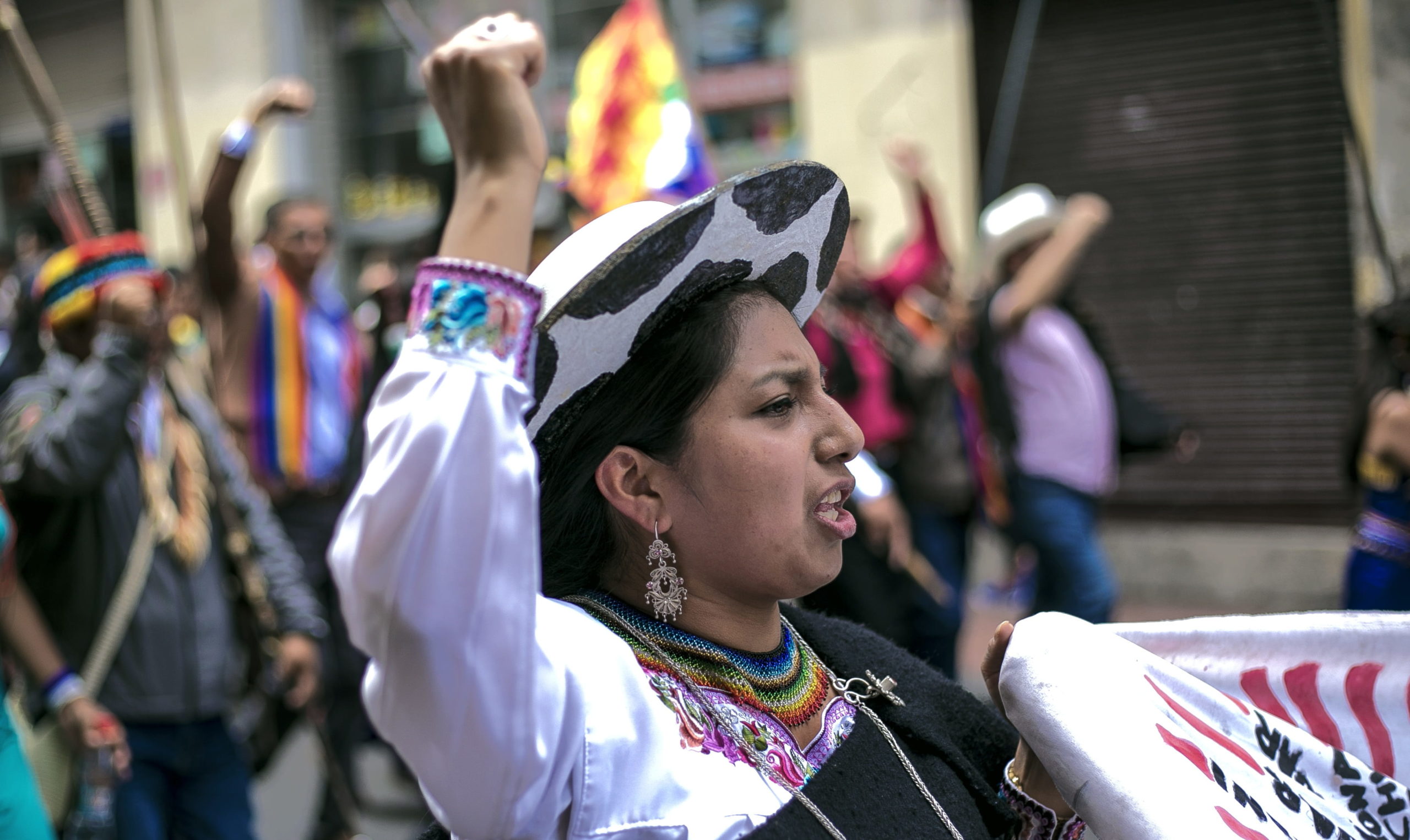Climate, race and Indigenous peoples

- Date
- Wednesday 11 November 2020, 14:00 - 15:15 GMT
- Location
- Online
Watch a recording of this webinar on YouTube
There is growing recognition of the importance of justice in responses to climate change – particularly in trying to avoid the unfair impacts that are being disproportionately felt by people who are Black, Indigenous and People of Colour.
In light of the Black Lives Matter movement, we would like to take time to reflect on how climate intersects with racial justice.
Join the Priestley International Centre for Climate for important presentations and discussion with some of the leading researchers and activists working in this space.
This webinar will feature presentations by:
- Ingrid Arotoma Rojas, Priestley PhD researcher at the University of Leeds
- Dr Adelle Thomas, Senior Caribbean Research Associate, Climate Analytics, and Director of the Climate Change Adaptation and Resilience Research Centre, University of Bahamas
- Hindou Oumarou Ibrahim, environmental activist, member of Chad’s pastoralist Mbororo community, UN Sustainable Development Goal Advocate, President of the Association for Indigenous Women and Peoples of Chad (AFPAT) and member of the Earthshot Prize Council
Dr Amrita Mukherjee, Lecturer in the School of Law at the University of Leeds, will introduce and chair the event. Her research interests are in international law and international human rights’ law, including Indigenous people’s rights and postcolonial perspectives of law.
Event programme
Ingrid Arotoma Rojas will present a talk titled: ‘Climate change and food vulnerability: the voice of Indigenous Shawi people of Nuevo Progreso, Peru’.
Indigenous food systems are central to understanding the physical, emotional, mental, and spiritual dimensions of health and wellbeing in IP. Globalisation, ongoing colonisation, environmental disruptions, and climate change are causing a nutritional transition globally, characterised by a growing reliance on imported food and a decrease in the availability of traditional foods. In this talk, Ingrid will present the main findings of her research with male Shawis in the Amazon rainforest of Peru. Specifically, how do they perceive, understand, and respond to changes in their food systems.
Dr Adelle Thomas will present a talk titled: ‘The link between climate change and racial justice’.
In any crisis it is the poorest and most vulnerable that suffer the greatest impacts. This has most recently been demonstrated in the COVID-19 crisis and in the global Black Lives Matter movement. In this talk, Adelle will discuss how racial justice is linked to climate change, drawing from examples of racist policies and practices that have led to the increased vulnerability of communities of colour and marginalisation of experts of colour. She will highlight the need for greater attention and action on climate and racial justice.
Hindou Oumarou Ibrahim will present a talk titled: ‘Indigenous Communities and Environmental Justice: The Impact of Climate Change’.
Hindou Ibrahim will discuss the importance of leaving no one behind as the international community fights climate change. Learn from her perspective, as a member of a nomadic pastoralist community, what the impact of climate change has been on her community, in Chad, and marginalised communities around the world. She will explore the value of integrating Indigenous knowledge with science and technology and the need to invest in natural climate solutions including direct investment in the climate resilience of vulnerable communities - to reduce the risk of future pandemics, tackle climate change and decrease poverty.
This event is open to everyone.
Watch the recording of this webinar:
